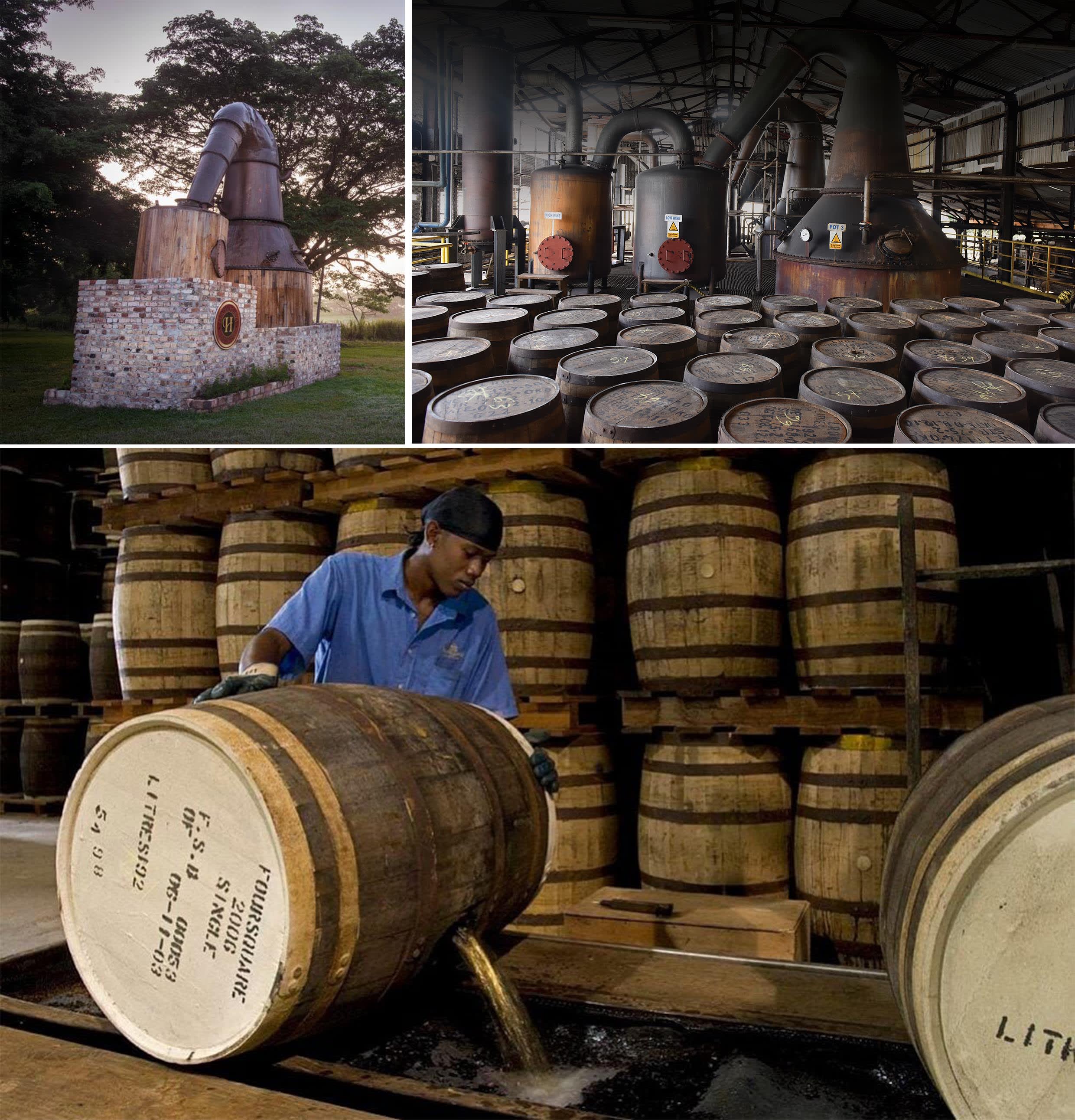

The idea of ‘UK rum’ has only recently begun to take shape. I’ve heard someone say that UK rum was different to traditional rum. It wasn’t a case of it being better, or worse, it was just different. Rum drinkers LOVE traditional rum. I wondered how much space there was for UK rum in the marketplace. Would customers loyal to amazing distilleries such as Four Square or Hampden Estate be interested in rum made and aged in our temperate climate? And if so, why?
I’ve since concluded the answer is yes, for several reasons. One is that through the gin boom, people have been educated as to what to expect from British Craft Spirits: quality, innovation and a decent story.
Long gone are the days of having whatever bottle is behind the bar. People want to know what the spirit is, where it was produced. They want to know what it’s made with and any interesting back story, the more whimsical the better. They want to know about the processes, what ingredients are used. They marvel at the wide variety of flavour and most importantly like to enthusiastically share their ideas with others. This mentality has spread to other spirits.
Good drams aren’t just for the niche collectors and nerdy enthusiasts, they are for anyone who takes even a mild interest in what is in their glass.
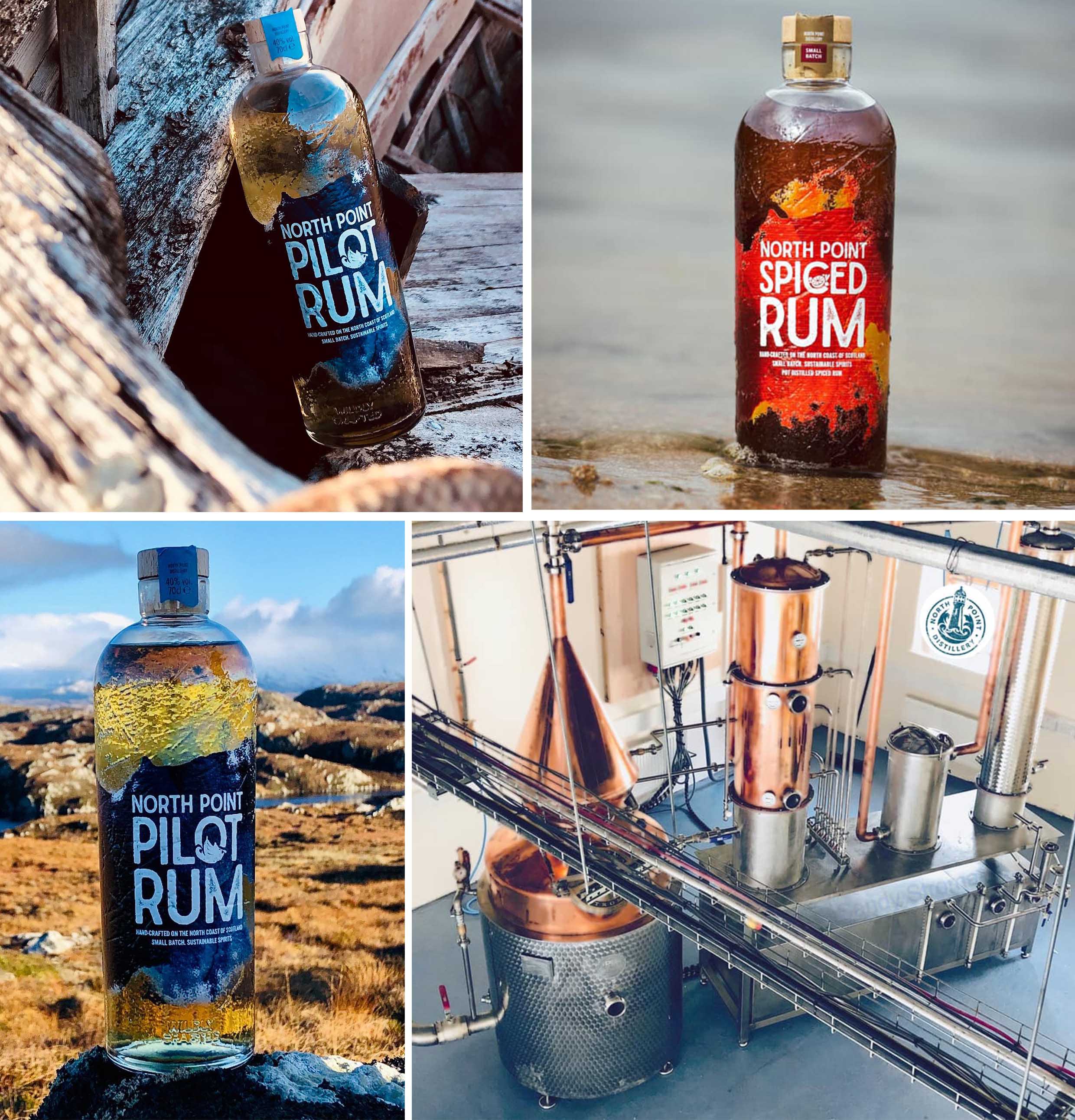

One of these is North Point Distillery, based on the North Coast of Scotland. They make all their products from scratch and pride themselves on sustainability and the quality of ingredients that are ethically sourced. Their Pilot Rum takes its name from the pilots that lived along the shore centuries past, guiding in ships carrying rum from the Americas to trade. It’s briefly aged in Scotch Whisky casks, making the rum a tangible experience of the age-old connection. They also make a spiced rum by redistilling their rum with 21 botanicals, rather than maceration alone.
Co-founder Alex MacDonald believes that rum is a blossoming industry that is on the precipice of exponential growth. ”The UK Rum market is one of the most exciting in the global landscape, with more and more distilleries popping up with innovative approaches and unique concepts... I think the rum industry should recognise the opportunities ahead with the growing demographic of younger individuals wanting to enjoy the spirit, while also understanding that with the great flexibility in rum that can be produced (spiced, golden, aged, white, new make, over proof). There are many avenues for distilleries to explore.”
There may be a lot of avenues, however, rum is a spirit with a strong traditionalist following and many of them want it done the age-old way. That said, when location dictates that you must think about things differently, within creative problem solving there is room for innovation. Our temperate climate means aging needs consideration. Importation of fresh sugar cane is troublesome, some distilleries like Portsmouth Distillery have opted for a dried powder form which was initially met with resistance from the community but is now more accepted.
And, if you’ve already broken the mold, why not run with it? Ulrich Dyer of Woodlab Distillery in Ireland has. He has taken his knowledge of organic chemistry from his previous pharmaceutical career and transferred it to distilling. His Irish Apple Rum is made with imported Caribbean rum and redistilled. Ulrich uses local Jonagold apples and through gas chromatography, which maps the base compounds contained within things, he has been able to swap out nutmeg and clove for something more local. “Surprisingly, these flavours come from a bush grown from a clipping my father gave me when he and his family first moved into the house.” Ulrich adds that, “different techniques are being developed in the UK and they shape our idea of rum.” Our idea of rum.
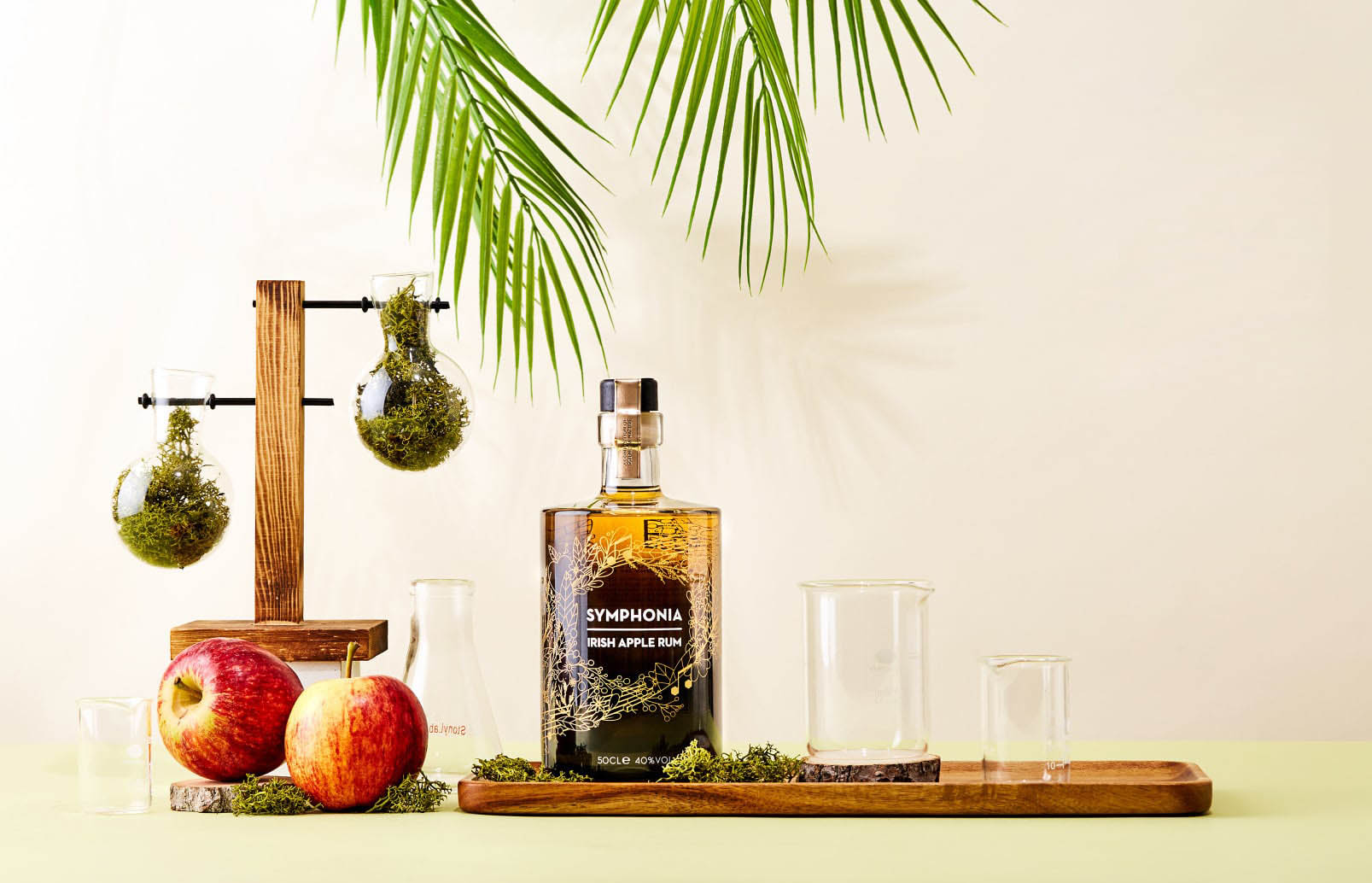

Innovation and story are two fundamental components of ‘UK Style’. It is a concept in early development. Distilling is a fluid industry, it is a creative process, there are developments, other styles and categories are forming all the time. During the first Rum of the Year competition, run by the team behind the Craft Distilling Expo, there were a considerable number of submissions of ‘botanical rum’, rum that has been redistilled with a blend of botanicals, much like gin. It is a challenging category; the botanicals still need to work with a weightier base spirit than NGS, which is hard to achieve. However, there are some great ones out there, and some using a historically recognised local botanical in the mix, ticking all quality, innovation and story boxes.
Two Drifters make their rum from scratch, and Co-founder Gemma Wakeman believes the identity is in the process. “I would say rum is unique to the distillery it is made in. So many ‘British’ gins and rums use bought in base spirits, so the brand has to make it their own by the botanical/spicing recipe they use. The uniqueness of Two Drifters starts from the very beginning; from the yeast used to ferment our molasses, the shape and size of our stills (as the amount of copper in contact with the rum on distillation has a big effect on flavour) all the way to the water used to dilute it to the desired abv – ours is UV filtered and put through a reverse osmosis system. We even use the dunder (the liquid left in the boiler after distilling a batch of rum) to make our rum even more unique to us. It’s a very Caribbean technique and adds so many great flavours back into the rum.”
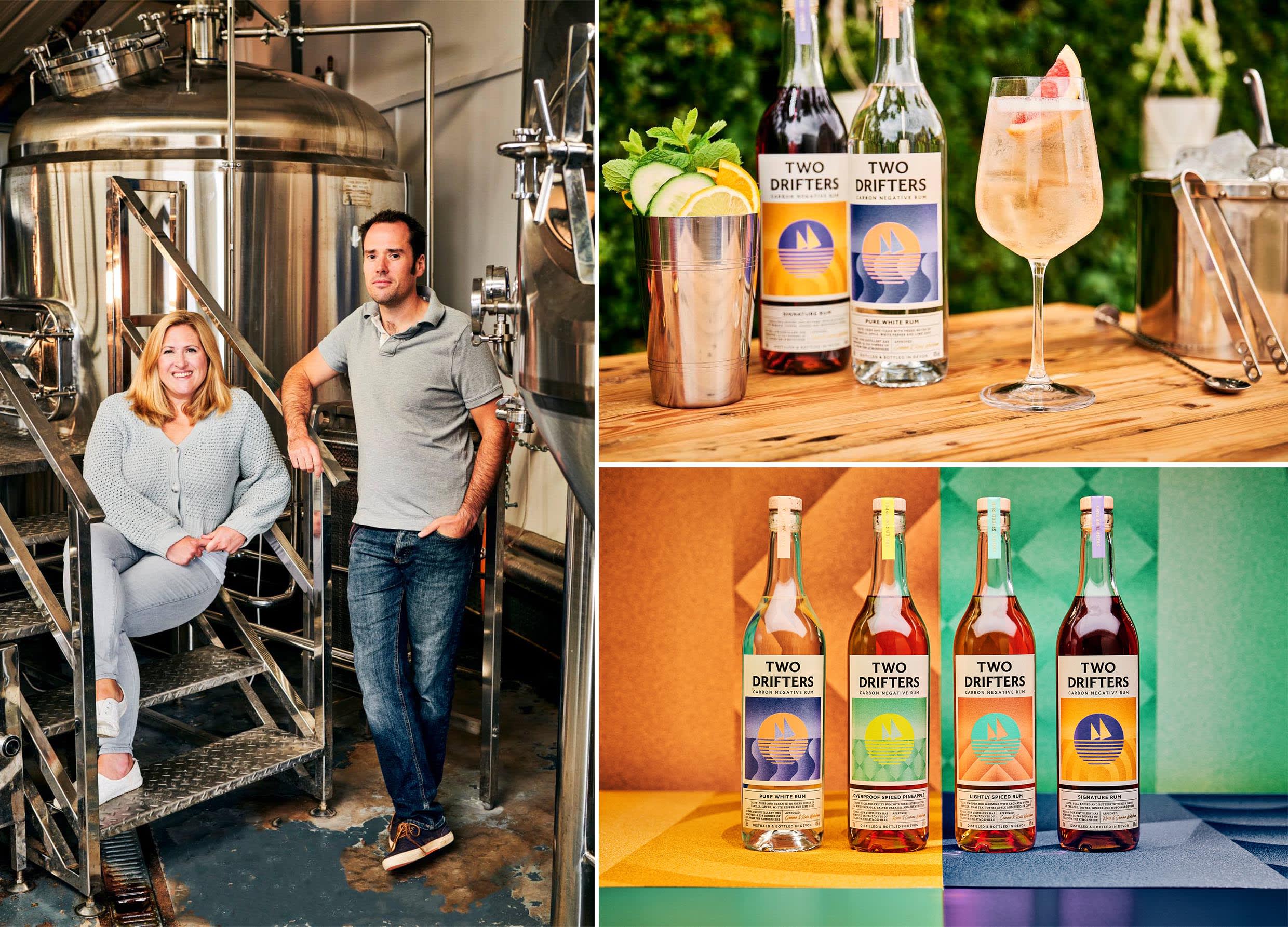

So, what about blenders? If you’re importing the base rum from elsewhere, how can you stamp any UK identity to it? For this I spoke to Plate Moysiadia, Brand Ambassador for Cabal, a rum that was launched recently by Harpalion Spirits, and is a blend of imported rums that are then aged in ex-Pedro Ximenez casks in Scotland. The trick is in the recipe development. Cabal pride themselves on their community, from experts to everyday drinkers. The varying recipes have to make it through several selection sessions, the idea being to refine it to something that is delicious and accessible. This ‘refinement’ shapes the rum to the ideas of the team.
Plato says, “As an independent blender that is not tied to a physical distillery or geographical location, we have the freedom to choose any combination and style of liquid we want to achieve what we believe is the ideal blend and flavour. We deeply involve consumers in this too, particularly in the development of our taste profiles, and our process lends itself well to this approach. We can think about how we want the finished liquid to taste, smell, look and feel; then explore our own way to achieve the desired result by experimenting and trialing different liquids that we wouldn’t have access to if we only relied on our own supply.”
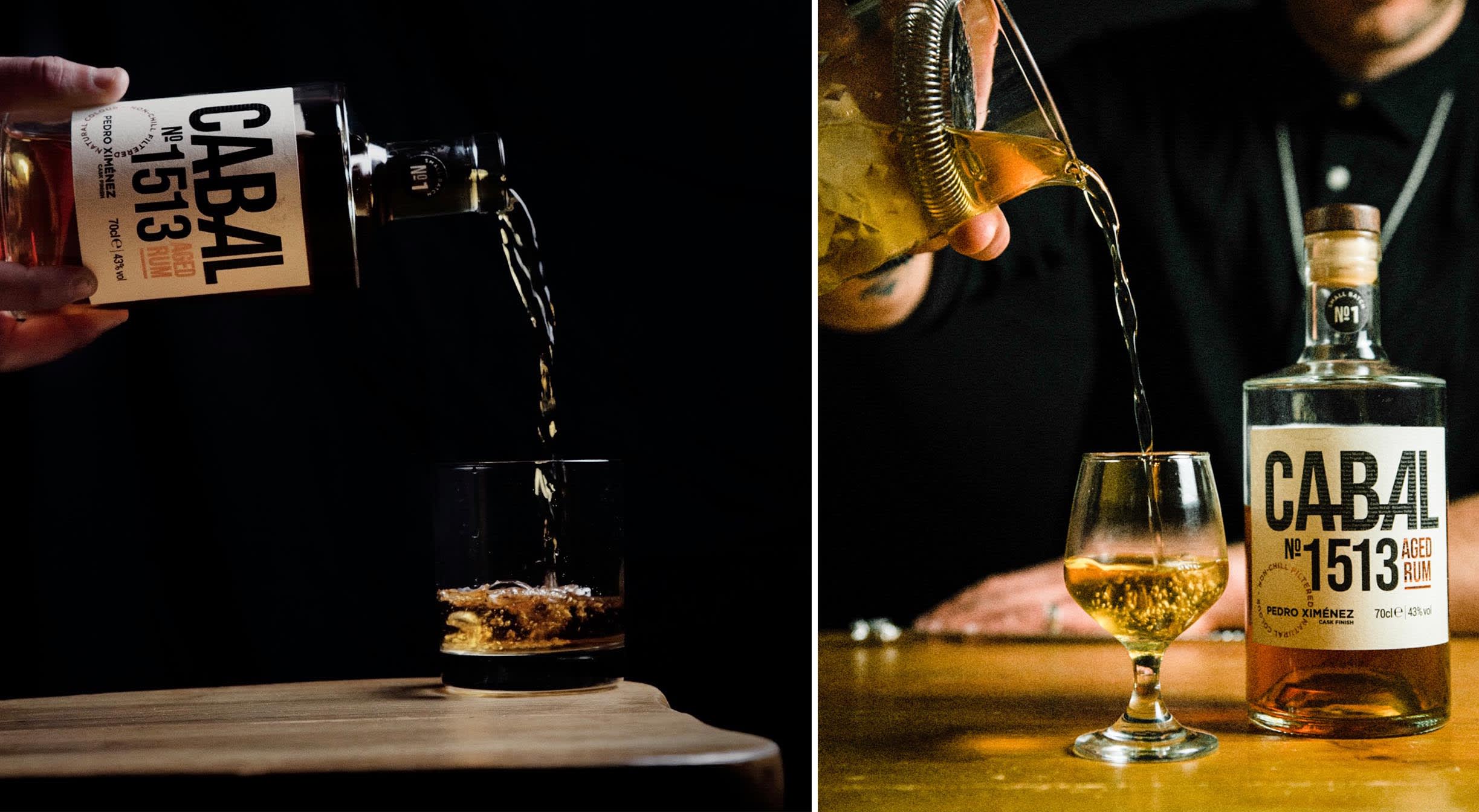

The picture of what UK Rum may be half finished, but it has form. The industry is flourishing with ingenuity. Overcoming its obstacles gives birth to new ideas. To me, traditional rum is the wise elder that will always be at the head of the table, much like Scotch Whisky, or London Gins. However it’s nice to see that UK rum now has its own seat at that table.
I humbly suggest that if whisky or gin can be made around the world in different styles, why can’t rum?
As a rum lover I understand that some will happily stick to their collection of rums from Barbados, Panama or Jamaica. I just think it’s nice to widen your collection with something a little different too, something different that’s flourishing quite nicely on these temperate shores.



